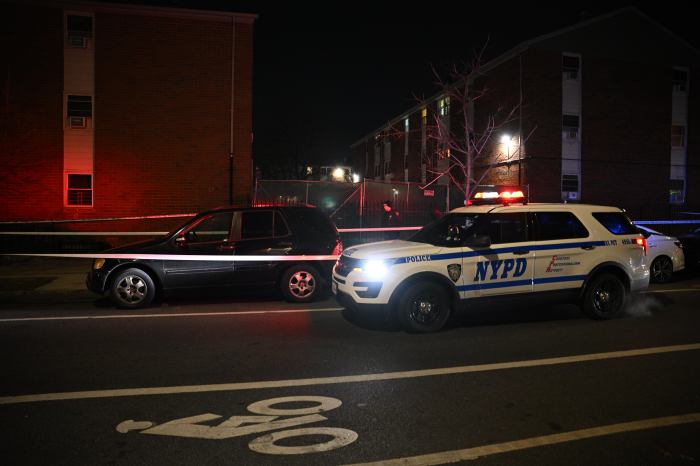
A few dozen NYPD police officers will soon sport body-worn cameras as part of a pilot program beginning in a few months, Police Commissioner Bill Bratton said Thursday.
Bratton said the program will include one precinct in each borough as well as one housing command. It will test two models of cameras, he said, both of which are turned on and off by the officers.
There are several questions to be worked out, he said, including when the officers will be required to turn the cameras on, as well as where footage will be stored.
“This is not a perfected technology at this time. This is an emerging technology and we want to be in a leadership role here, in its embrace as well as the experimentation of it,” Bratton said. “The camera is a significant enhancement to the he-said-she-said controversy. The idea that there is something to look at. But it is not the end-all, if you would.”
The cameras have already been used in several cities, including Los Angeles, where Bratton led the police department before coming back east. Most recently, officers in Ferguson, Missouri, started wearing cameras after a police-involved shooting there killed one teen and sparked weeks of tension.
In her stop-and-frisk decision in 2013, Manhattan U.S. District Judge Shira Scheindlin ruled, among other things, for a pilot program to record stops in five test precincts.
The pilot program, which will cover 60 officers , will cost about $60,000, purchased by the New York City Police Foundation. The precincts chosen are those with the highest number of 2012 stop and frisk encounters.
All officers involved in the pilot will be volunteers, Bratton said.
“This is an extraordinarily complex initiative,” Bratton said. “There’s policies that have to be developed. And while there are recommended policies from some of the major police organizations, once size does not fit all.”
Mayor Bill de Blasio said the pilot program is a necessary step before rolling out the cameras to such a large police department.
“We believe it’s something very promising, but it’s a pilot for a reason,” de Blasio said at an unrelated news conference Thursday. “I want to emphasize this. Other places that are using the cameras are in much smaller, less complicated circumstances.”
The program will be a “series of deliberate steps,” de Blasios said, that will show if the cameras are sustainable in such a large city.
“New York City, just the data stored alone is a huge challenge on this kind of scale. The confidentiality issues are a huge challenge,” he said. “So we’ve got a lot to sort out, but we think this is a promising pilot.”
Public Advocate Letitia James has been a strong and vocal proponent of the plan even as other groups voice concern about an invasion of privacy or the potential for cameras to encumber an officer’s ability to do their job.
“This pilot program will provide transparency, accountability, and protection for both the police officers and those they serve, while reducing financial losses for the city,” James said in a joint statement with de Blasio. “New York City will do everything it takes to stay the safest big city in the nation. This means testing new methods and staying ahead of the curve on emerging technologies like body cameras.”
Pat Lynch, president of the police’s union, the Patrolman’s Benevolent Association, was once against the idea of body-worn cameras but lately as taken a more ‘wait and see’ approach.
“A body camera pilot program is part of our challenge to Judge Scheindlin’s decision on stop, question and frisk,” Lynch said in a statement on Thursday. “Police officers have nothing to hide but there are many unanswered questions as to how this will work practically. We await the answers.”
Fear that body cameras may be used to surveil “innocent New Yorkers” is a big cause for concern, said New York Civil Liberties Union Executive Director Donna Lieberman in a statement.
“Body cameras ought to be a win-win for both the police and the communities they serve as long as their use is limited to police interactions and addressing complaints of abuse or wrongdoing,” she said. “But we also have concerns about mission creep and privacy.”
Safeguards must be put in place, she added, to prevent this.
(with Emily Ngo)































